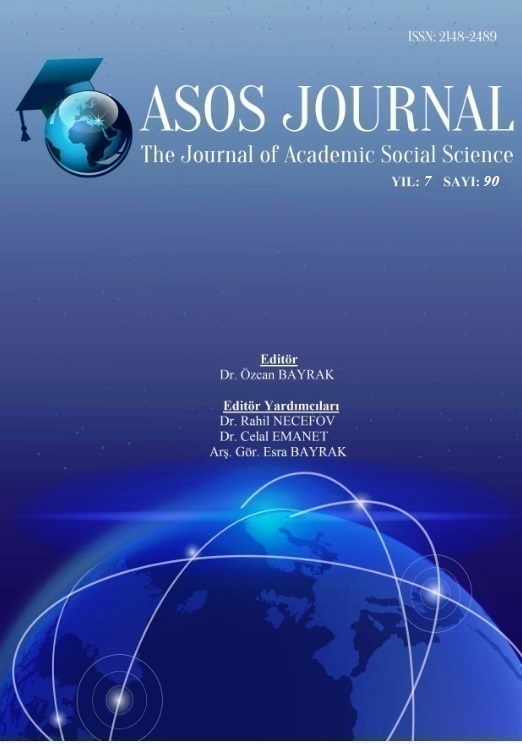ODA MÜZİĞİ ÇALIŞMALARININ MÜZİK ÖĞRETMENİ ADAYLARININ UMUT DÜZEYLERİNE ETKİSİ (VİYOLONSEL DÖRTLÜLERİ ÖRNEĞİ)
Author :
Abstract
Bu çalışma, Gazi Üniversitesi ve Müzik Eğitimi Anabilim Dalı viyolonsel öğrencileri ile sınırlıdır. Araştırmada, oda müziği çalışmalarının, öğrencilerin umut düzeylerine etkisi olup olmadığını saptayabilmek amaçlanmıştır. Örneklem grubunu oluşturan toplam 16 viyolonsel öğrencisi, akademik başarı, seviye ve çalma becerilerine göre dengeli bir dağılım gözetilerek dört grup olmak üzere viyolonsel oda müziği grupları (viyolonsel dörtlüleri) oluşturulmuştur. Öğrencilerle oda müziği çalışmalarına başlamadan önce öntest uygulaması bağlamında durumsal umut ölçeği uygulanmıştır. Daha sonra, oluşturulan gruplar ile dokuz haftalık, haftada ikişer saatten toplam on sekiz saatlik "viyolonsel dörtlüleriyle" oda müziği çalışması araştırmacılar tarafından yapılmıştır. Bu çalışmaların sonucunda viyolonsel öğrencilerine sontest uygulaması bağlamında tekrardan durumsal umut ölçeği uygulanmıştır. Çalışmada, Müzik Eğitimi Anabilim Dalı öğrencilerinin oda müziği çalışmalarından sonra umut düzeylerinin arttığı sonucuna ulaşılmıştır.
Keywords
Abstract
This study is limited with the cello students studying at Gazi University and Department of Music Education. Purpose of the study is to find out whether chamber music activities have an impact on the hopefulness levels of students. Cello chamber groups (cello quartets) were formed by equally dividing a total of 16 cello students, which compose the sample group, into four groups according to their academic achievements, levels, and playing skills. Before starting chamber music activities, a situational hope scale was applied to students, within the context of preliminary application. Then, the chamber music activity was conducted with these “cello quartets” formed by the researchers, which lasted a total of eighteen hours as two hours per week and nine weeks in total. At the end of the research, another situational hope scale has been applied to students as a post-test. The study concluded that the chamber music activities led to an increase in the situational hope levels of Music Education students.





